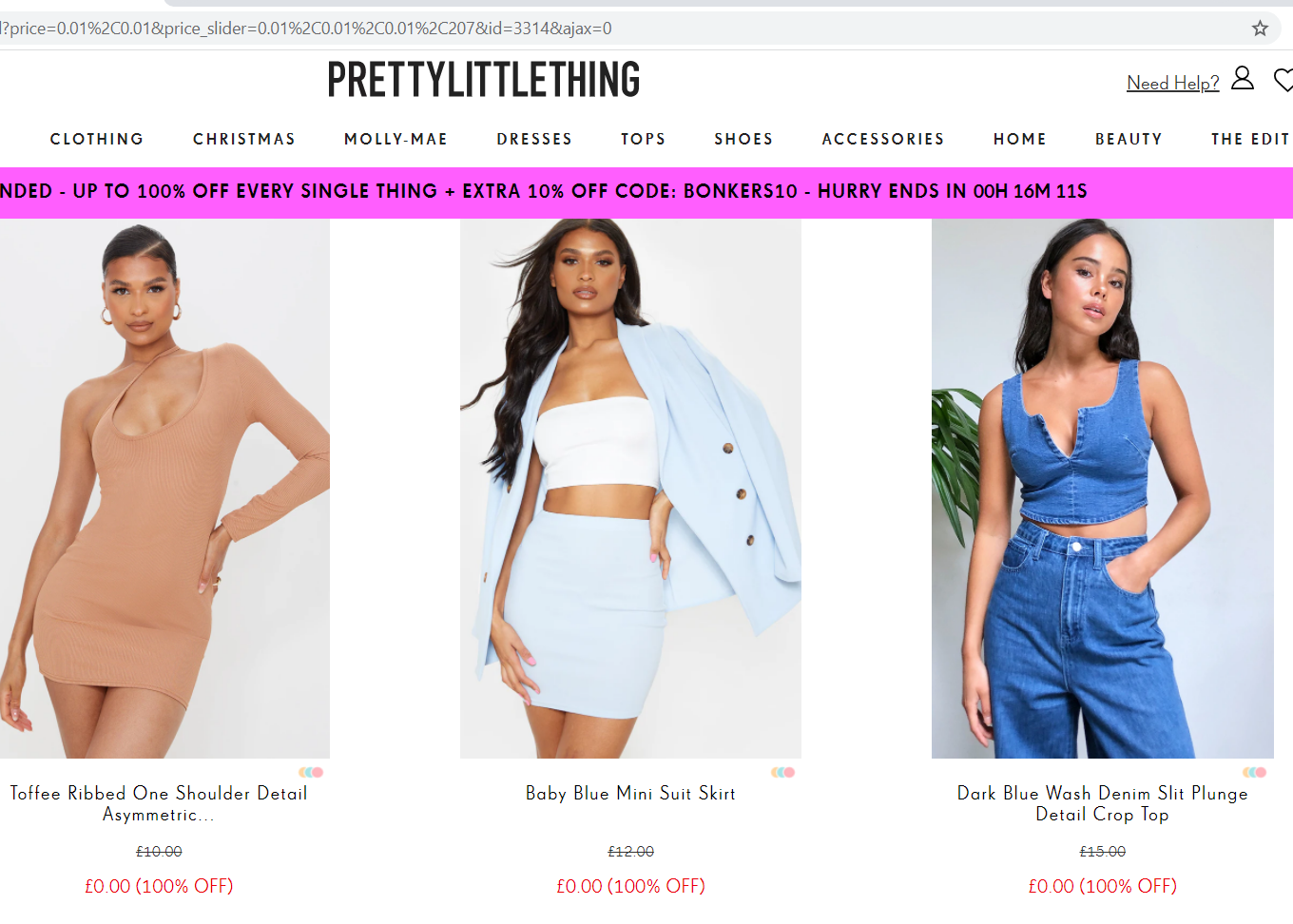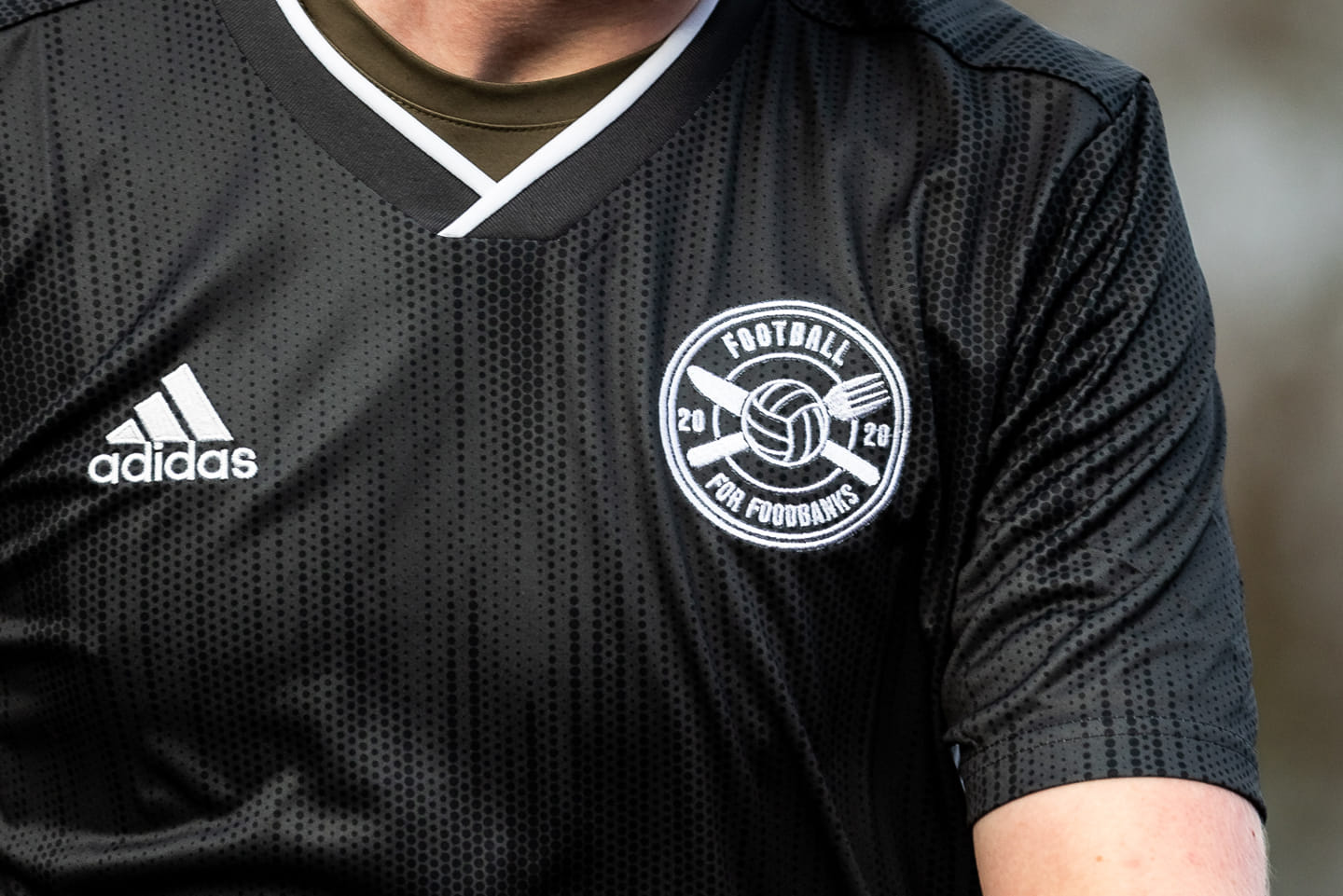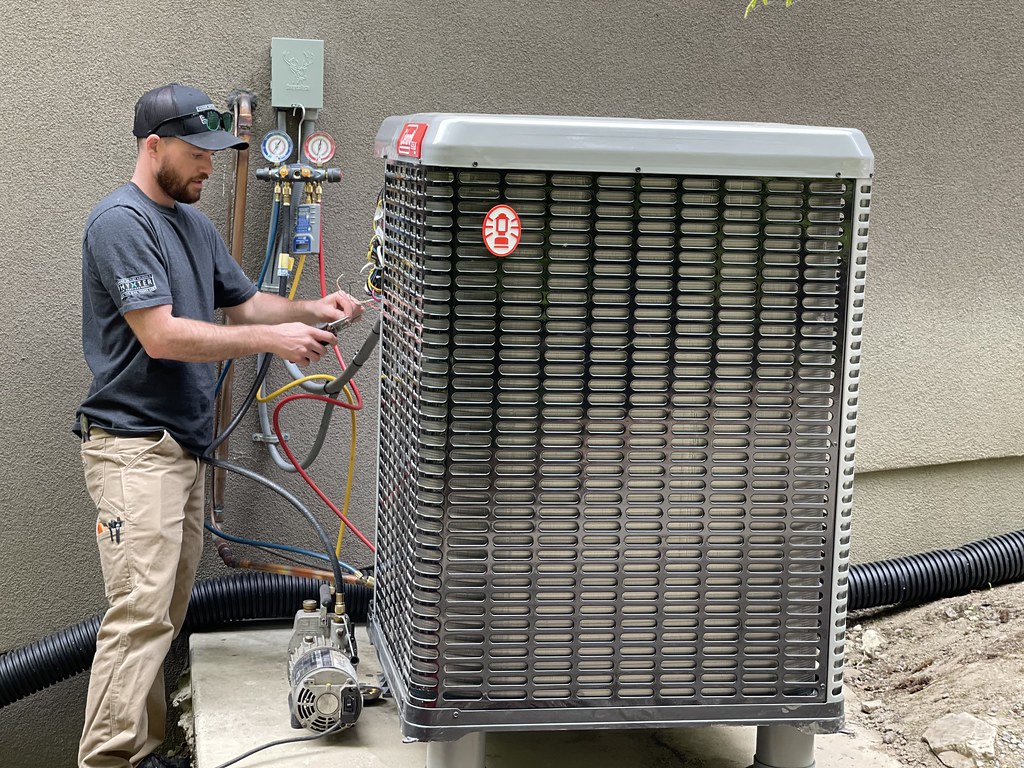It was the sale thousands of young girls stayed up all night for in the hope they could bag a free wardrobe of clothes, but is the latest marketing ploy by Pretty Little Thing really what powerful brands should be promoting when looking after our planet has never been more prevalent?
In the build up to Black Friday, loyal followers of the high fashion brand were bombarded with emails and hit with too good to miss offers across Instagram and Twitter, leading their customers in anticipation.
The brand, who is supported by influencer, Molly-Mae, offered up to 100 per cent off in the ‘Pink Friday’ sale, encouraging customers to buy new clothes and stock up on the latest trends at little to no cost.
But what are the environmental impacts of this sale?
Pretty Little Thing is a company which encourages people to buy more than they need. With the help from social media influencers, they create and promote new trends to market to their customers at low prices, but what may be low cost for the consumer could be high cost to the planet.
Overconsumption is one of the main contributors to climate change, as each item of clothing goes through a rigorous process before it arrives at our doorstep. The Intergovernmental Panel on Climate Change (IPCC) found the fashion industry as a whole makes up a whopping 10% of global carbon dioxide emissions each year.
Laura Young, a 25-year-old environmental influencer with more than 40k on Instagram, said: “First of all it’s about the scale but also a lot of the clothes that we do buy is are predominately made of plastic which is a fossil fuel, plastic which has a lot of environment degradation through the manufacturing and production, but also at the end of its life, ending up in landfill, ending up as microplastics.”

Laura also holds an MSc in Environmental Science. Image taken by Laura Young.
Pretty Little Thing limited customers to one free item per order. However, this didn’t stop eager customers from making multiple orders of free items to get past the restriction. This has contributed to more plastic waste, as more packaging was used.
This video has been trending on TikTok, of a young girl whose room is showered in Pretty Little Thing parcels, so much so that you cannot see the floor:
@olivia.kingx ready for all the shit i’m gonna get #pltblackfriday #plt #fypシ #Autumn
Laura said: “I was scrolling through TikTok and saw this room full of bags of stuff from Pretty Little Thing after the Black Friday sale. Linked to this individual’s TikTok was their Depop account. If you scroll through there are hundreds of new posts from the last 24 hours, all with the stuff that they’ve bought. Its people who are thinking I’m just going to buy all this tat and resell it on what is supposed to be a second-hand fashion app.”
Mobile applications such as Depop, Vinted and Ebay have been flooded with ‘like new’ items of clothing- some still with the tags on. It appears that individuals do not see the harm in constantly buying new items, as they can just resell them on these platforms, donate them to charity, or recycle them.
However, according to ClothesAid reports that in 2018 around 350,000 tonnes (30%) of unwanted clothing ended up in landfill.
Pretty Little Thing has a section on its website where they speak about sustainability. The company has partnered with reGAIN, an app that rewards recycling. They say: “Did you know you can do your bit to prevent the unnecessary pile up of discarded clothing in landfills around the UK? Introducing reGAIN, the app that allows you to turn your unwanted clothes into discounts to get cash off your next PrettyLittleThing purchase.”
While it may seem that Pretty Little Thing is being progressive in its approach, we have to ask whether this is to capitalise on more custom and promote fast fashion further, as you use your reward to buy more fast fashion.
Why do people buy from them?

Image taken by Lexie Majeed.
Lexie, a 19-year-old student, explained how she buys from Pretty Little Thing when she needs clothes delivered to her doorstep quickly.
She said: “I think people buy from Pretty Little Thing due to its convenience, their clothes are cheap and they have a range of sizes. It’s easier to online shop as well so it makes their website one of the first places you check when in need of clothes. Because of Covid, people haven’t been able to go to actual shops, meaning the brand has gotten even bigger over the past year or two. It’s just the easiest option when you’re in need of some clothes quickly and for a low price.”

Image taken by Emily Tobin.
Emily, a 22-year-old bartender expresses how she struggles to stay trendy on her budget, and feels increasing pressure from society to do so.
She said: “I work full-time I’m trying to save up for a mortgage, pay rent. It’s ridiculous how much money we’re expected to put aside but also try to still be trendy and fit in with society. It’s definitely aimed at people with student loans, who are on benefits, people who are just trying to make something of themselves.”
Pretty Little Thing’s cheap clothing is a popular reason as to why people shop with them, but their clothing is mainly made from plastics such as polyester, nylon and acrylic. With every wash, these clothes release microplastics into the water, furthering the damage to the environment and wildlife, according to Greenpeace.

Lexie’s Pretty Little Thing parcels. Image taken by Lexie Majeed.
When approached by Sheffield Wire, a spokesperson for Pretty Little Thing said: “Unique Black Friday offers are much anticipated by our customers and a planned part of our marketing strategy. The items on sale are carefully selected and discounting is a marketing investment that we make and is incorporated into our costing model, it does not in any way impact the cost price we pay to suppliers, or the way we value the work that goes into creating the garments. We use our discounting strategies to give our customers access to on trend items no matter what their budget.”




